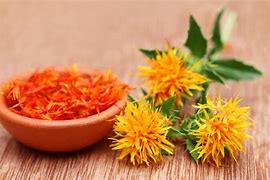Description
The health benefits of ylang ylang essential oil can be attributed to its properties as an antidepressant, antiseborrheic, antiseptic, aphrodisiac, nervine, and sedative substance. It is also used for lowering high blood pressure.
This essential oil was not widely known about until very recently, but with thousands of cosmetics products and their advertisements flooding the global media, it soon became a household name and a favorite of aromatherapists.
The essential oil of ylang-ylang is extracted by steam distillation of fresh flowers of the ylang-ylang tree, which bears the scientific name Cananga odorata and is commonly found in the rainforests of certain Asian and South Pacific Islands like Indonesia, Philippines, Java, Sumatra, Comoro, and Polynesia.
The chief components of the essential oil of ylang-ylang are benzyl acetate, benzyl benzoate, Linalool, caryophyllene, geranyl acetate, methyl benzoate, p-cresyl methyl ether, and other components known as sesquiterpenes, all of which contribute to its aroma and medicinal properties.
Along with its widespread use in perfumes and aromatherapy treatments due to its very pleasing and delicate fragrance, ylang-ylang essential oil is also used for a variety of medicinal purposes.
What is ylang ylang?
Ylang-ylang is the name of a tree that is native to Indonesia but has been naturalized in many tropical locations. The tree is particularly famed for its flowers, which have a very pleasant aroma, and a powerful essential oil that has been linked to a number of medicinal benefits. Its essential oil is highly sought after for its antioxidants, sesquiterpenes, and other organic compounds that make it so potent.
What does ylang-ylang smell like?
The smell of ylang-ylang is quite unique and powerful, which is why so many perfumes and cosmetic products feature this tropical flower. The smell is slightly floral, so it is primarily used in women’s beauty products, but it also works as a middle note in men’s personal care products.
Precautions of Ylang Ylang Essential Oil
Always test for skin sensitivity prior to widespread use and use on the feet when possible. Excessive use of any oil can lead to skin sensitization. Keep out of eyes, ears, or nose. Not all oils are created equal, so test brands carefully, and never use an oil in a way not recommended by its maker.
Popular Uses of Ylang Ylang Essential Oil
Put Ylang Ylang into an Epsom Salt bath for relaxation.
Refresh your skin with an aromatherapy steam facial using Ylang Ylang essential oil.
Put on your wrists for a sweet and floral perfume.
Add Ylang Ylang to fractionated coconut oil for a deep hair conditioner
Massage into the shoulders or back, apply to the feet, or use aromatically to promote peace. (I’ve even tried tossing it at the heads of cranky people, but that didn’t go over well.)
For emotional balance, I find that ylang ylang oil is best used either over the heart or aromatically (even inhaled directly from the bottle).
















Reviews
There are no reviews yet.